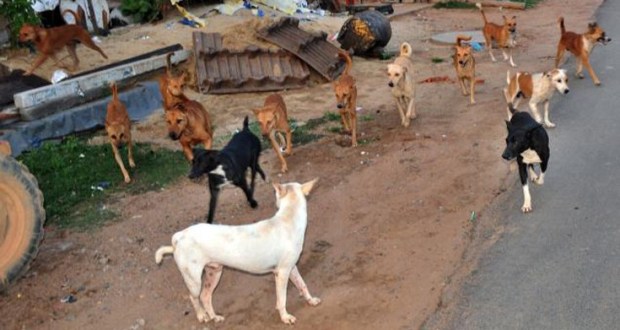 The number of people suffering feral dog bites across the country increased in recent times with a rising dog population on the streets of Dhaka in the absence of culling and sterilization.
The number of people suffering feral dog bites across the country increased in recent times with a rising dog population on the streets of Dhaka in the absence of culling and sterilization.
At least 42 per cent of dog bite victims were children, mostly boys under 15. Physicians at the IDH (Infectious Disease Hospital) said that, attacks by stray dogs increased in recent times. The number of people visiting hospital after suffering dog bites also increased, they said.
At least 200 dog bite victims from the capital and the nearby areas took treatment each day, shows the records of the IDH at Mohakhali.
No steps are being taken by the authorities concerned to control the menacing attacks by stray dogs in the city, keeping its residents constantly worried while moving.
IDH can provide only some medicines and vaccines and even does not have the Intensive Care Units and enough doctors and technicians to attend the patients of communicable diseases.
The records of the Health Services show that at least 600 victims take the treatments at government hospitals in the outlying areas each day.
The stray dog population swelled in the capital and the rest of the country due to ban of culling and suspension of sterilization activities in 2012, said city corporation officials.
2,147 people died across the country after suffering rabies in 2010 while 1,445 died in 2012 due to rabies, according to separate annual surveys conducted by the Health Services.
According to health bulletin of the health services for 2014, each year between two and three lakh people suffer dog bites.
Rabies kills an estimated 2,000–2,500 people every year in Bangladesh, ranking it third globally after India and China in terms of human impact.
However, in rabies cases, dogs were not captured by this surveillance system and other reliable data are scarce. The mortality in both animals and humans may be several folds higher than reported since rabies is not a notifiable disease in Bangladesh.
City people are facing problems because of these stray dogs. Their free movement on the city roads is also hampered by the prowling dogs. The city residents face the problems mostly at night. If anyone receives bite from a stray dog, there is no alternative but to take vaccines.
But the vaccines are very expensive. Prices of four types of vaccine which are required to be applied after dog-bite are not less than Tk. 2,400 to 2,500, which is not easily affordable for common people.
In 2011, the Health Services launched a dog vaccination program to free Bangladesh from rabies by 2020. Until now, only two lakh dogs could be vaccinated only once in the municipal towns across the country.
In 2012, the two city corporations in the capital under a contract assigned the local NGO, Obhoyaronno to sterilize stray dogs and vaccinate them against rabies.
Health Services officials said that approximately 10,000 stray dogs were sterilized by Obhoyaronno in the capital until 2014. They said over 150,000 stray dogs still roamed freely in the capital.
 Mohammadi News Agency News – Features – Photo
Mohammadi News Agency News – Features – Photo






